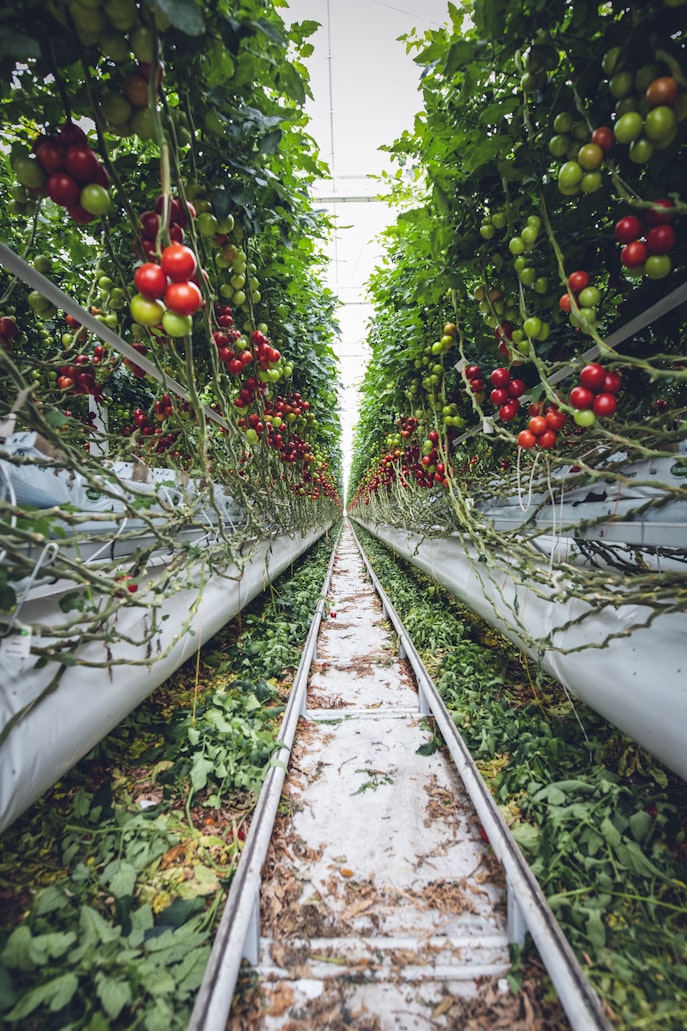The Benefits Of Organic Farming For The Environment And Human Health

Organic farming is a method of farming that focuses on using natural methods to grow crops and raise animals, without the use of synthetic chemicals and genetically modified organisms (GMOs). Organic farming has been gaining popularity in recent years due to its potential benefits for the environment and human health.
Benefits for the Environment
Reduced Chemical Use
One of the main benefits of organic farming is that it reduces the use of synthetic chemicals. Conventional farming relies heavily on the use of pesticides, herbicides, and synthetic fertilizers to control pests and boost crop yields.
These chemicals can have negative impacts on the environment, such as contaminating soil and water, and killing beneficial insects and other wildlife. Organic farming, on the other hand, uses natural methods to control pests and fertilize crops, such as crop rotation, companion planting, and the use of natural predators.
Promotes Soil Health
Organic farming also promotes soil health by using methods that increase the organic matter and biodiversity in the soil. Organic matter is essential for soil health, as it helps to improve water retention, nutrient cycling, and the overall structure of the soil.
Organic farming practices, such as crop rotation and the use of cover crops, can help to increase the organic matter in the soil, leading to healthier and more productive soils.
Promotes Biodiversity
Organic farming also promotes biodiversity by creating habitats for a wide variety of wildlife. Conventional farming practices, such as monoculture and the use of synthetic chemicals, can lead to the loss of biodiversity by destroying habitats and killing beneficial insects and other wildlife.
Organic farming, on the other hand, uses a variety of methods to promote biodiversities, such as crop rotation, companion planting, and the use of cover crops. These methods can help to create habitats for a wide variety of wildlife, leading to healthier and more productive ecosystems.
Benefits for Human Health
Lower Pesticide Exposure
One of the main benefits of organic farming for human health is that it can help to reduce exposure to pesticides. Pesticides are widely used in conventional farming, and they can have negative impacts on human health, such as causing cancer and other chronic diseases. Organic farming, on the other hand, uses natural methods to control pests, reducing the need for pesticides.
Higher Nutritional Value
Organic food is often higher in certain nutrients, such as vitamin C, antioxidants, and minerals, compared to conventionally grown food. This is because organic farming methods promote soil health, which can lead to healthier and more nutrient-rich crops. Additionally, organic farming methods do not use synthetic fertilizers, which can dilute the nutritional value of food.
Reduced Risk of Antibiotic Resistance
Another benefit of organic farming for human health is that it can help to reduce the risk of antibiotic resistance. In conventional farming, antibiotics are often used to prevent and treat diseases in animals. This practice can lead to the development of antibiotic-resistant bacteria, which can be harmful to human health.
Organic farming methods, on the other hand, do not use antibiotics, and instead rely on natural methods to prevent and treat diseases, such as providing animals with healthy living conditions and natural remedies.
In conclusion, organic farming has many benefits for both the environment and human health. Organic farming reduces the use of synthetic chemicals, promotes soil health, and promotes biodiversity. Organic food is often higher in certain nutrients, and can help to reduce exposure to pesticides, and the risk of antibiotic resistance.
Organic farming can also provide ecological, economic and social benefits to farmers and communities. It’s important for individuals, communities, and governments to support organic farming by purchasing organic products and by raising awareness about the importance of organic farming for the environment and human health.
Resources:
- Organic Farming | US EPA
- Help for Organic Farming
- Organic Agriculture
- Organic Farming | Sustainable Agriculture Research & Education Program
- Genetically Modified Organisms | National Geographic Society
- GMO Crops, Animal Food, and Beyond | FDA
- Reducing Pesticide Exposure
- 6 Ways To Improve Soil Health | Lodi Growers
- Health Benefits of Organic | OTA
- Organic Food and Farming as a Tool to Combat Antibiotic Resistance and Protect Public Health
- Antibiotic Resistance in Agricultural Soil and Crops Associated to the Application of Cow Manure-Derived Amendments From Conventional and Organic Livestock Farms






